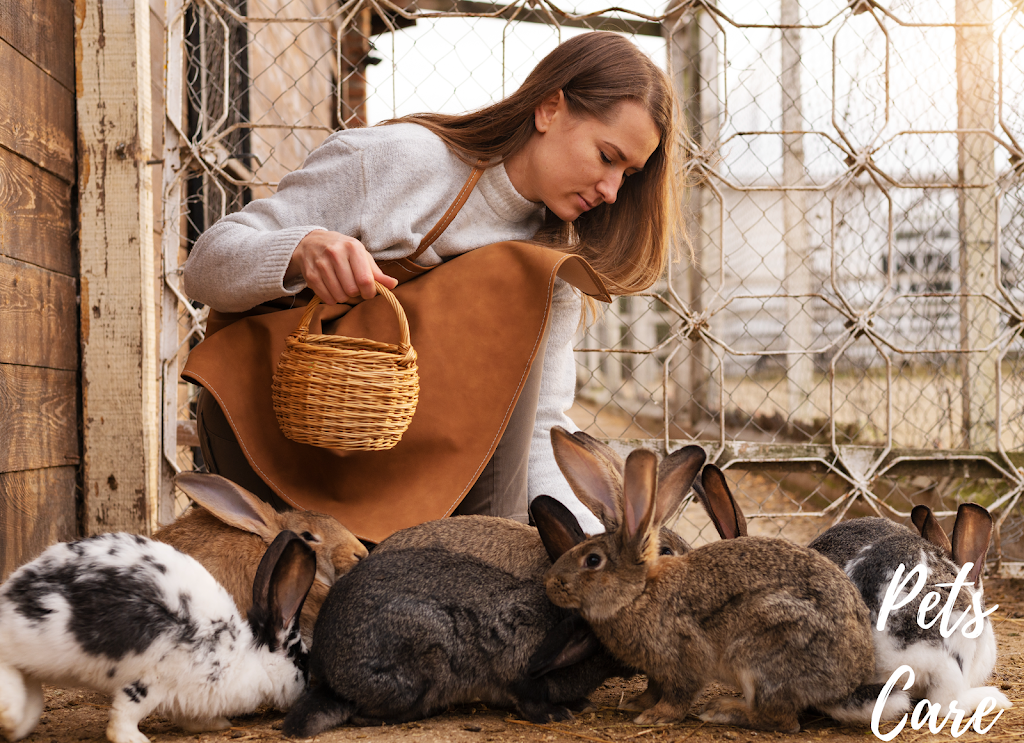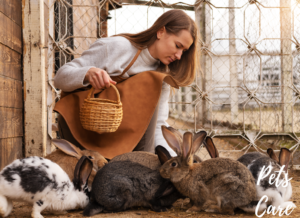A Comprehensive Guide to Feeding Rescue Rabbits: Nutrition, Health, and Happiness
Introduction:
Rescue rabbits, often overlooked or abandoned, find solace in the caring arms of dedicated individuals and organizations. These adorable creatures require proper care, especially when it comes to their diet. Feeding rescue rabbits goes beyond mere sustenance; it’s about ensuring their health, happiness, and overall well-being. In this comprehensive guide, we delve into the intricacies of rabbit nutrition, exploring what to feed, what to avoid, and how to provide a balanced diet that supports their unique dietary needs. What do you feed rescue rabbits?
Understanding Rabbit Nutrition:
Before delving into specific feeding recommendations, it’s essential to understand the nutritional requirements of rabbits. Rabbits are herbivores, meaning their diet primarily consists of plant-based foods. Their digestive systems are specialized for breaking down fibrous materials found in plants. A rabbit’s diet should be high in fiber, moderate in protein, and low in fat. Essential nutrients for rabbits include fiber, vitamins (particularly A and D), minerals (such as calcium and phosphorus), and water.
Hay: The Foundation of a Rabbit’s Diet:
Hay serves as the cornerstone of a rabbit’s diet. High-quality grass hay, such as timothy, orchard grass, or brome, should make up the majority of their daily food intake. Hay provides essential fiber, aiding in digestion and preventing gastrointestinal issues like hairballs and stasis. It also promotes dental health by encouraging natural chewing behavior, which helps wear down their continuously growing teeth. For rescue rabbits, offering unlimited access to fresh hay is crucial for their health and well-being.
Pellets: Providing Essential Nutrients:
In addition to hay, pellets formulated specifically for rabbits can supplement their diet with essential nutrients. Look for high-quality rabbit pellets that are Timothy hay-based and free from unnecessary additives like seeds, nuts, or colored pieces. These pellets should comprise a small portion of the rabbit’s daily food intake, serving as a concentrated source of vitamins and minerals. However, it’s important not to overfeed pellets, as excessive consumption can lead to obesity and other health issues.
Fresh Greens: Adding Variety and Nutrition:
Fresh greens add variety to a rabbit’s diet while providing additional nutrients. Leafy greens like romaine lettuce, kale, parsley, cilantro, and dandelion greens are excellent choices. However, introduce new greens gradually to prevent digestive upset, and ensure they are thoroughly washed to remove any pesticides or contaminants. Remember to offer a diverse selection of greens to provide a range of vitamins and minerals.
Vegetables: Nutrient-Rich Treats:
Certain vegetables can serve as nutritious treats for rabbits. Carrots, bell peppers, broccoli, and cucumber are among the vegetables that rabbits typically enjoy. However, these should be given in moderation, as excessive consumption can cause digestive issues due to their high water content. Additionally, avoid feeding rabbits starchy vegetables like potatoes and rhubarb, as well as toxic plants like onions and garlic.
Fruits: Occasional Delights:
Fruits can be offered as occasional treats for rabbits, but they should be given sparingly due to their high sugar content. Safe fruits for rabbits include apple slices (without seeds), strawberries, blueberries, and bananas. Remove any seeds or pits before offering fruits to prevent choking hazards. Treat fruits as occasional indulgences rather than staples of the rabbit’s diet. What do you feed rescue rabbits?
Water: Hydration is Key:
Fresh, clean water should be available to rabbits at all times. Ensure they have access to a water bottle or bowl that is regularly refilled with fresh water. Hydration is essential for maintaining overall health and preventing issues like urinary tract problems.
Supplements: When Necessary:
In some cases, rescue rabbits may require additional supplements to address specific health concerns. For example, rabbits with dental issues may benefit from vitamin C supplements to support gum health and wound healing. However, always consult with a veterinarian before introducing any supplements to a rabbit’s diet, as improper dosages can be harmful.
Avoiding Harmful Foods:
While many foods are safe and nutritious for rabbits, some can be harmful or even toxic. Avoid feeding rabbits foods such as chocolate, caffeine, sugary treats, processed foods, and foods high in fat or salt. Additionally, steer clear of plants that are toxic to rabbits, including avocado, rhubarb leaves, and nightshade plants like tomatoes and potatoes.
Feeding Considerations for Specific Health Conditions:
Rescue rabbits may have specific health conditions or dietary requirements that necessitate special considerations. For example, rabbits prone to obesity may require a diet with limited pellets and treats, focusing instead on high-fiber hay and fresh greens. Likewise, rabbits with dental issues may benefit from softer foods or hay alternatives that are easier to chew. Consult with a veterinarian to develop a tailored feeding plan that addresses the individual needs of each rescue rabbit.
Conclusion:
Feeding rescue rabbits requires careful attention to their nutritional needs, ensuring they receive a balanced diet that supports their health and well-being. By prioritizing high-quality hay, supplemented with appropriate pellets, fresh greens, and occasional treats, you can provide rescue rabbits with the nutrition they need to thrive. Remember to offer fresh water at all times and avoid harmful foods and plants that could jeopardize their health. With proper care and nutrition, rescue rabbits can enjoy happy, healthy lives in their forever homes.

